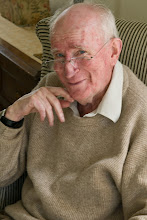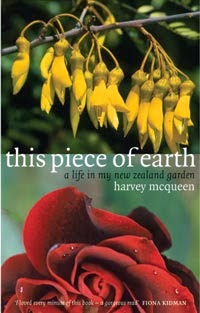I'm trying to get on with a largeish writing project, so far with very little success. Lately I've decided to stop trying to begin at the beginning and plunge in somewhere nearer the middle, but so far that hasn't worked very well either. The trouble with having a computer is that it's very hard to face a blank screen for very long. It's much easier to start rummaging around in your files and find something, anything, that might serve as a way in.
It didn't work, of course. But along the way I found a story about the first dinner party I cooked for, so I thought I'd post it. (This is, as some of you will already have remarked, a cunning way to avoid having to come up with an entirely new blog post. I have written another new piece this week, though - a Letter from Elsewhere on the Veitch story. Read it on Scoop at
http://www.scoop.co.nz/stories/HL0807/S00142.htm )
I’m nineteen, I’ve been married for over a month, and I’ve invited my favourite professor to dinner at our flat. It all seems simple enough. First we will have Seventeenth Century Grilled Pork Chops, spread with a mixture of parsley, chopped onion, oil and lemon juice. The recipe comes from the friend who gave me cooking lessons after I got engaged, because I literally couldn’t boil an egg. With them we will have rice (because potatoes are boring and bourgeois) and green beans (frozen, so no problems there).
Then we will have Chocolate Orange Fluff. I found it in my kitchen bible, The Nancy Spain Colour Cookery Book, with a picture for every recipe. Dissolve a packet of orange jelly, beat it up with a can of evaporated milk, leave it to set, then decorate it with chocolate buttons, bits of orange and whipped cream. Easy.
The dessert has to sit on the kitchen floor to set, because the table is in the sitting room, disguised with a rough linen tablecloth (the only item in my glory box). I’ve laid it carefully with the pick of the wedding presents, brown Finlandia plates and lumpy brown pottery beakers. Tom Crawford and Chris sit awkwardly knee to knee, eating peanuts and drinking Bakano, while I work frantically behind the curtain, trying to time boiling the rice and beans and grilling the chops so everything will be ready at the same time.
The rice is gluggy and the beans are grey. The chops aren’t raw, but they are rock hard. Tom chews his way bravely through it all, keeping up a flow of urbane literary chat. I take solace from the coming dessert, sitting pretty in its cut glass dish. But not knowing the difference, I used sweetened condensed milk instead of evaporated milk. The fluff has turned into a sickly-sweet goo.
It takes me a while, but I do learn. I still make the chops, though now I bake them, and every so often I go back to Nancy Spain. But the Chocolate Orange Fluff has never reappeared.
Friday, July 18, 2008
Friday, July 4, 2008
Making the cull for the book fair
It's book fair time again, when Wellington's Downtown Community Ministry solicits donations of books for its monster annual book fair (some people call it bookfair, but I think that's an American aberration). (Call 384-7699 and you'll get instructions on where to leave your books if you can, or how to get someone to pick them up if you can't.) Last year we moved house, and had to have a real culling, but it was unfortuantely too soon for the fair, so the DCM missed out. This year we mean to make up for it by thinking long and hard about which books we really, really don't need to live with for the rest of our lives.
But it's always so difficult. Both my husband and I (I like using that regal phrase) grew up in homes without many books. Consequently, both of us regard books in a curious light, in which they take on far more significance than they would normally possess - particularly, perhaps, the ones we acquired years ago when we were first discovering the worlds they opened for us. So we each cling on to different but equally strange selections of battered and often quite undistinguished works which have acquired the numinous status of talismans, and strongly resist any suggestion that we should let them go, regardless of whether we will ever actually be impelled to read them again.
So far this year, my discard pile includes two outdated travel guides to France; a couple of 1950s novels by New Zealand women bought in library sales (which I acquired as rare proof that there were indeed women writing valuable fictions back then, but which, I have now forced myself to acknowledge, will in fact be available in the National Library should I ever need to study them); an overseas vanity press novel which a friend bought from the author to be kind, and passed on to us, but which remains unread; a once useful but now passe (there should be an acute accent there but Word won't put one on) study of the media by an opinionated Australian, Keith Windschuttle; and a solid green and brown paperback, The Waac Story: The Story of the New Zealand Womens' [sic] Army Auxiliary Corps, which I have admitted even my omnivorous passion for women's biography is unlikely to encompass (but which I may nevertheless try to pass on to a historian I think will use it, rather than throwing it to the anonymous and probably uncaring book fair wolves). And that's it. I may manage one or two more, at a pinch.
And then, of course, I will go to the book fair and bring back at least as many more.
But it's always so difficult. Both my husband and I (I like using that regal phrase) grew up in homes without many books. Consequently, both of us regard books in a curious light, in which they take on far more significance than they would normally possess - particularly, perhaps, the ones we acquired years ago when we were first discovering the worlds they opened for us. So we each cling on to different but equally strange selections of battered and often quite undistinguished works which have acquired the numinous status of talismans, and strongly resist any suggestion that we should let them go, regardless of whether we will ever actually be impelled to read them again.
So far this year, my discard pile includes two outdated travel guides to France; a couple of 1950s novels by New Zealand women bought in library sales (which I acquired as rare proof that there were indeed women writing valuable fictions back then, but which, I have now forced myself to acknowledge, will in fact be available in the National Library should I ever need to study them); an overseas vanity press novel which a friend bought from the author to be kind, and passed on to us, but which remains unread; a once useful but now passe (there should be an acute accent there but Word won't put one on) study of the media by an opinionated Australian, Keith Windschuttle; and a solid green and brown paperback, The Waac Story: The Story of the New Zealand Womens' [sic] Army Auxiliary Corps, which I have admitted even my omnivorous passion for women's biography is unlikely to encompass (but which I may nevertheless try to pass on to a historian I think will use it, rather than throwing it to the anonymous and probably uncaring book fair wolves). And that's it. I may manage one or two more, at a pinch.
And then, of course, I will go to the book fair and bring back at least as many more.
Subscribe to:
Posts (Atom)




